The APSA Nominating Committee is pleased to announce its 2022 nominees for APSA Council. Each has agreed to serve if elected. The call for nominations was circulated among the membership, and outreach specifically to APSA committees and organized sections was conducted. The committee made its decisions after careful deliberation and consideration for the diversity of the field and the varied interests of political scientists. The candidates will be put to a vote by the full membership via electronic ballot in August. Additional information about APSA elections is available at this link: https://www.apsanet.org/ABOUT/Governance/Elections.
2021-2022 Nominating Committee: Sara Wallace Goodman, University of California, Irvine (chair); Elisabeth Anker, George Washington University; David Darmofal, University of South Carolina; Maureen Feeley, University of California, San Diego; Eric Gonzalez Juenke, Michigan State University; and Kevin Scott, Bureau of Justice Statistics.
PRESIDENT-ELECT
Mark Warren
Mark Warren is the Harold and Dorrie Merilees Chair for the Study of Democracy at the University of British Columbia. 
Statement of Views: I am honored to be nominated to serve as a President-Elect of the APSA. As a member since I was a graduate student, I’ve served on the APSA Council, chaired the Foundations of Political Theory Section, and organized APSA Annual Meeting political theory sections a number of times. I’ve been impressed with APSA’s ability to incorporate and serve the diverse interests within political science, to grow with the discipline, to lead diversity, equity, and inclusion initiatives, to support excellence in teaching and research across a wide array of institutions and circumstances, and to raise the public profile and impact of political science. In addition to helping APSA to continue to build on these strengths, we should continue to find ways of addressing urgent and ongoing existential threats to democracy, justice, and good government, as well as potentially catastrophic failures of collective action, including the climate crisis. It will be especially important to continue to our dialogue about how APSA can serve these social and political missions while remaining an inclusive and pluralistic professional organization.
VICE PRESIDENT
Andy Aoki
Andy Aoki is professor of political Science at Augsburg University, where he is also the M. Anita Gay Hawthorne Professor of Critical Race and Ethnicity Studies and a senior fellow in the Sabo Center for Democracy and Citizenship. 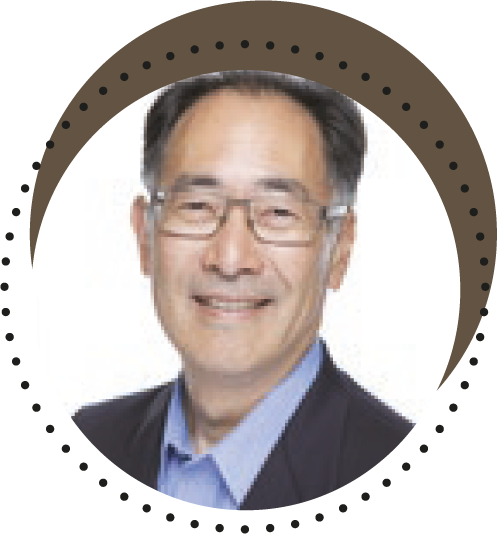
Statement of Views: I have been active in APSA issues for many years. Much of my efforts have been spent working with others to help the association reflect a wider range of approaches, viewpoints, and professional circumstances. I think there has been substantial progress from when I attended my first conference (when a hurricane was bearing down on New Orleans and the conference wasn’t canceled), but continued work is needed. Higher education is obviously in a time of great change; even the relative few in economically secure institutions are likely to feel this, and the growing number at financially struggling schools are experiencing it right now. It’s difficult to know what this will mean for the future of our discipline, but it’s very unlikely that we’ll be able to continue with business as usual. Having worked with junior scholars as they make the transition from grad school to the market, I’ve seen how APSA—and other political science professional associations—can become irrelevant if the job searches do not go well. Retaining relevance in this changing environment is going to be an important challenge for the association.
Maria C. Escobar-Lemmon
Maria C. Escobar-Lemmon is professor of political science and Associate Dean for Research and Graduate Programs in the College of Liberal Arts at Texas A&M University. 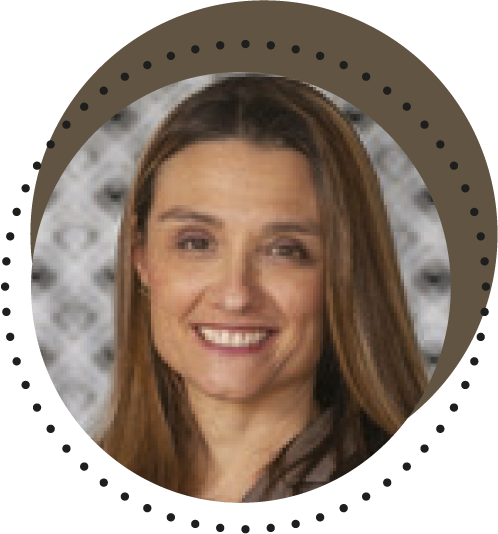
Statement of Views: I am honored to be nominated. As a scholar of representation, I am aware that barriers to the full inclusion of everyone exist, and we must work to reduce those barriers. I believe that the quality of decisions and deliberation is greatly enhanced when a diverse and fully representative chorus of voices is at the table. I am committed to making APSA a welcoming and inclusive place for everyone. We must communicate our excitement and enthusiasm for our discipline so as to ensure that all anyone who wants to can see themselves as a member of our profession. As an association we must ensure that our meetings and services provide value to all our members keeping in mind that the APSA membership comes from a wide range of institutions and contexts.
Brett Ashley Leeds
Brett Ashley Leeds is Radoslav Tsanoff Professor of political science and chair of the Department of Political Science at Rice University. 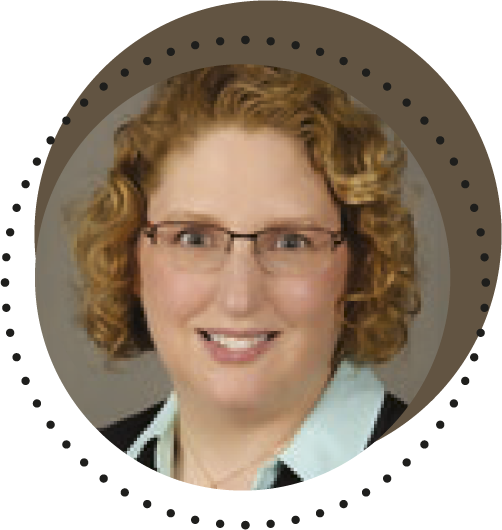
Statement of Views: Disciplinary associations like APSA are crucial to the collective scholarly enterprise and yet they are facing enormous challenges as publishers adjust to new financial models, universities face budget shortfalls, and the ability to interact virtually makes travel to meetings less essential. At the same time, APSA members and their departments need the support of the association as they struggle with issues like how to respond to challenges to the value of our expertise, how to encourage and support diversity in our field to better reflect the lived experience of citizens and students, and how to adjust to new teaching realities accelerated by the pandemic. Our discipline continues to wrestle with perennial issues of how best to connect scholarship with policy and public outreach and how to integrate and support different epistemological and methodological approaches to the study of politics. My goal as APSA Vice President is to collaborate with others in leading the association in adjusting to new realities, providing support and value to members, and deepening norms of inclusive, constructive, and productive interaction. I bring significant past leadership experience in APSA, the Peace Science Society, the International Studies Association, and Rice University to the role.
COUNCIL
Jason P. Casellas
Jason P. Casellas is an associate professor of political science at the University of Houston. 
Statement of Views: I am honored to be nominated to serve on the executive council. I’ve been fortunate to be involved in leading some of our regional associations, and I think more collaboration with these associations to expand our reach to faculty teaching in liberal arts colleges and community colleges is essential. I am deeply committed to our discipline and want to work with other members of the council to effectively advocate for the value we bring to public discourse and policymaking. Political science has so much to offer especially in these uncertain and challenging times as threats to democracy at home and abroad challenge fundamental principles too many take for granted. As such, I believe that as a discipline we must reinvigorate the teaching of political science at the undergraduate level, and I am supportive of recent efforts by APSA leadership to rethink the undergraduate major and my experience working with Advanced Placement and College Board places me in a position to assist with this effort.
Pearl K. Dowe
Pearl K. Dowe is the Asa Griggs Candler Professor of political science and African American studies at Emory University, with a joint appointment between the university’s Oxford College and Emory College of Arts and Sciences. 
Statement of Views: It is an honor to be nominated to serve on the APSA Council. I have been engaged with APSA my entire academic career in which I have worked at Historically Black Colleges and Universities (HBCU), a state flagship university and a private institution. As a member of the council, I would work to ensure that APSA increases its engagement with scholars across a wide array of institutions and backgrounds. This engagement would focus on developing affordable and accessible professional development to support scholars in each phase of their academic career. APSA’s professional development opportunities, teaching and research support should be structured to impact all scholars within the discipline. There can no longer be a perception that APSA is only an organization for those who work at R1 institutions. I will also promote APSA increasing its work to support and advance the value of public scholarship and scholars working to engage in political events within their communities and throughout the country and world. My time on the council will focus on these issues and ensuring that all members within the organization are represented.
Leigh Jenco
Leigh Jenco is professor of political theory at the London School of Economics. 
Statement of Views: I am honored and humbled by this nomination for APSA Council. As a specialist in comparative political theory and Chinese political thought, who has spent her professional career in Asia and Europe, I hope to build on APSA’s promise to be an association to support the study of politics—not just in America, but in all the places, times, and communities where politics happens, and wherever its scholarly institutions are sited. If elected, I will draw attention to the distinctive challenges faced by higher education institutions, students, and faculty all over the world, where issues such as academic freedom, institutional funding, and gender and racial diversity do not always mimic the patterns of the US. I am also a first-generation college graduate of working-class parents, who is passionate about building opportunities for less affluent students to enter the profession and make their voice heard within it. I have supported, and as council member hope to expand, APSA’s initiatives to support graduate students—including those studying non-Western political theory. In my teaching at the LSE, as well as editor of the APSR and other journals, I have worked to recognize the contributions of historically marginalized forms of political thought and practice. I hope to continue these efforts in my role as council member, recognizing our duty to understand and critically engage even those forms of politics with which we may disagree.
Susan McWilliams Barndt
Susan McWilliams Barndt is professor of politics and coordinator of the program in public policy analysis at Pomona College. 
Statement of Views: In this moment when colleges and universities face so many pressures, both from within and from without, I am grateful to be nominated to serve on the APSA council. I have always appreciated the range of political science: that the discipline encompasses, for instance, both highly quantitative work and more literary work like my own. I am committed to maintaining that disciplinary range because I believe intellectual diversity within the profession makes us all—or at least should make us all—a little more honest, a little more humble, and a little more open-minded. I do worry about the trends I see in scholarship toward boundary-policing and hyper-specialization, and I hope that APSA can find ways to take even more advantage of the breadth within our discipline. As students of politics, we evidently do not speak just within a profession but within a public, and I am interested in working with others to discuss our role as citizen-scholars. Finally, I believe in the enduring and transformative power of undergraduate teaching—that is why I chose to work at a small liberal-arts college—and I want to ensure that APSA continues its attention to our critical role as teachers.
Aseem Prakash
Aseem Prakash is a professor of political science, the Walker Family Professor for the College of Arts and Sciences, and the founding director of the Center for Environmental Politics at the University of Washington. 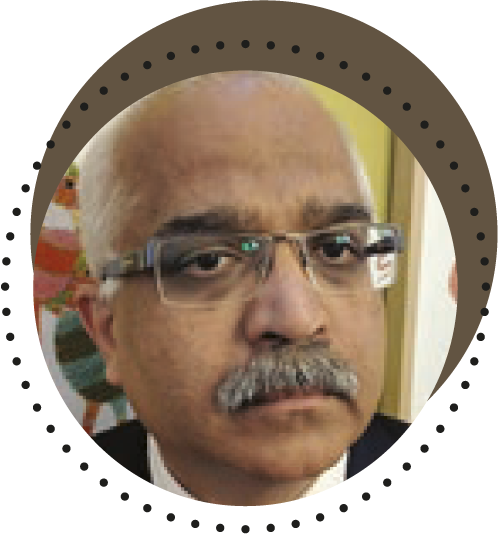
Statement of Views: I am honored to be nominated for the APSA council. Most societal challenges, especially the climate crisis, are not amenable to technological fixes; their political and institutional dimensions need to be carefully studied and addressed. Unfortunately, such efforts are impeded by the rise of populism, the decline in trust in institutions, and the broader erosion of democratic norms. As a discipline, we should focus on evidence-supported pathways to address these challenges and develop a communication strategy to rally experts and public opinion behind them. Academics cannot afford to lose the battle of ideas to populists. Political science plays a vital role in reclaiming the policy space for thoughtful, evidence-based, and respectful discourse. I want to focus my time and efforts on the council to make the discipline more inclusive and explore ways in which political scientists can contribute effectively to the policy discourse. Specifically, I would encourage the APSA to engage more with the multiple dimensions of the climate crisis so that political science is at the forefront of climate conversations and debates.
Bassel F. Salloukh
Bassel F. Salloukh is associate professor of political science and head of the politics and international relations program at the Doha Institute for Graduate Studies. 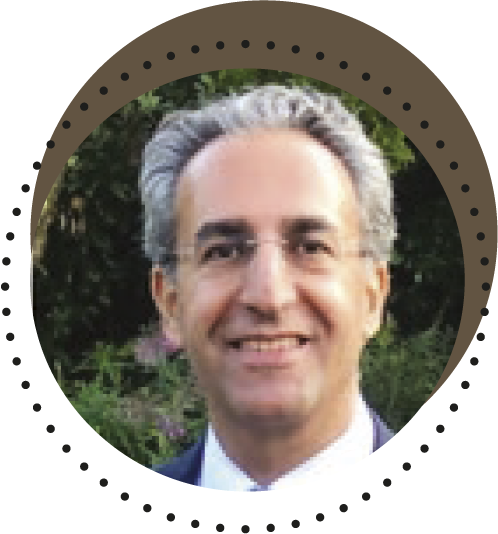
Statement of Views: APSA has an instrumental role to play in promoting knowledge production and innovative teaching approaches in political science globally. I can still remember the first time I sat down with an APSA delegation visiting Beirut to discuss the challenges facing praxis and teaching of political science in academic institutions in the Arab world. Albeit the café where we met was later destroyed by the Beirut Port explosion of August 4, 2020, the work we started then is now firmly institutionalized in multiple forms, whether the APSA MENA Politics Section or the APSA MENA Workshops. I am especially interested in working with my APSA colleagues and pertinent sections to establish the institutional infrastructure that offers rigorous methodological and theoretical training to a new generation of political scientists from the region. The objective is to create knowledge from the region and for the region, but always in critical conversation with the debates that shape our exciting discipline across the globe. I consider APSA the bridge that connects and helps facilitate these conversations in a manner that serves its own mission and the multiple challenges we encounter as we try to advance political science teaching and research in the Arab world and beyond.
Christina J. Schneider
Christina J. Schneider is professor of political science and co-director of the Future of Democracy Initiative at the Institute on Global Conflict and Cooperation at the University of California, San Diego. 
Statement of Views: I am deeply honored to be nominated to serve on the APSA Council. As a scholar and mentor, I have always strived to foster academic excellence, diversity and inclusion, and mutual respect within the community. If elected to the APSA Council, I would be committed to work toward strengthening the efforts of the association toward those important goals. In addition to supporting the association in building those strengths, I have long promoted research that employs diverse methods and reaches across disciplines to address major challenges such as the current existential threats to democracy and the climate crisis. I believe that the association has an important role to play in addressing those important and enduring questions by bringing to bear the diverse scholarship and expertise of its membership.
Erica Townsend-Bell
Erica Townsend-Bell is associate professor of political science and director of Africana studies at Oklahoma State University. 
Statement of Views: It is no secret that the academic landscape is fraught, and that its challenges remain unequally distributed among the members of the discipline. Given this, the question of who disciplinary organizations serve, and how they do so, remain ever relevant. I am honored to be nominated to the APSA council. If elected, I see my role as helping the association to nuance our attention to the important questions of the moment, internal and external to the discipline. For instance, there is a growing consensus that our scholarship should be more public-facing, but what are the implications of this for the varied members of the body? How can APSA help to support scholars when, inevitably, the temerity of some to simply exist in the public sphere exposes them to vitriol? What else might the discipline do to recognize, include, and support the ever-increasing ranks of non-tenure track and contingent faculty? How can political science grow in its commitments to diversity, equity, and inclusion in ways that translate to meaningful engagement and action, rather than empty rhetoric? If elected I look forward to assisting the council in navigating these complexities. ▪




